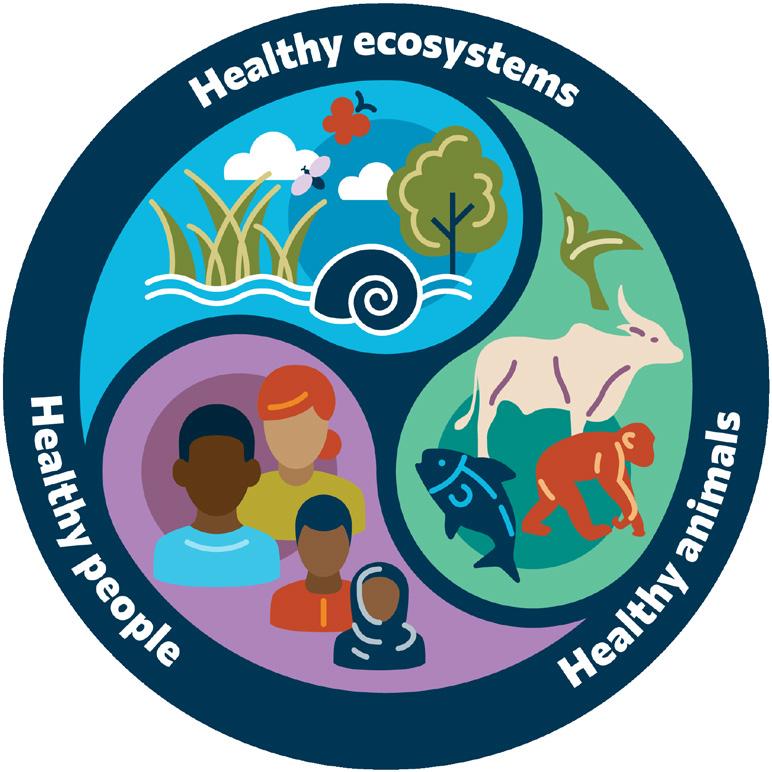
3 minute read
Reducing transmission of infection: a special focus on One Health
Strengthening One Health with the UK Government
As an active member of the Action for Global Health (AfGH) network, we chaired two ‘policy deep dive’ roundtables with the UK Government on One Health. These were held in response to growing interest in this holistic approach to global health, which looks to understand and utilise all health systems to achieve sustainable health for people, animals and ecosystems.
Our roundtables invited an international panel of One Health speakers from a range of backgrounds to speak to a crossdepartmental group from the UK Government, with space for an open discussion between AfGH members, speakers and policy makers. We covered questions on what works, lessons learned, measuring impact and demonstrating the added value of a One Health approach. Following these events, One Health was successfully included in the most recent cross-government Global Health Framework.
Developing One Health workforces
The Tripartite Zoonoses Guidance (TZG) is a United Nations initiative that supports countries in taking a One Health approach to zoonotic diseases. This approach encourages countries to make the best use of limited resources and to reduce any indirect societal losses that can arise, such as impacts on farmer livelihoods, poor nutrition or food safety, and any potential restrictions on trade and tourism.
The guide includes several operational tools on how to use One Health for prevention, detection, and in response to zoonotic diseases. We performed the initial research and analysis for the workforce development operational tool and now sit as the only non-Tripartite member on the expert consultation group as it starts to be piloted. The tool will assist national governments in assessing their entire One Health workforce and building a road map for how best to maximise efficiency and effectiveness in their work across human, animal, plant and environmental health sectors.
Upskilling to embrace the One Health approach
One Health considers the interconnections between human, animal and environmental health.

Diagram by: Unlimit Health
As the demand for cross-sectoral ways of working continues to be recognised, it is essential that the workforce has the right skills to embrace this new approach. For this reason, as part of our membership of the European Network for Ecohealth and One Health, we co-lead a publication proposing nine updated core competencies that could be taught across disciplines as complimentary to their area of expertise.
These competencies set out to equip people with skills for working with others to understand systems-based approaches and how to address the complexities that surround them. The WHO has included the competences in the TZG Workforce toolkit, and they have featured in several international seminars, including the UN General Assembly’s Science Summit.
Members of the Selam Sand Producers Association extract sand from the Bedessa river bed in Damot Weydie Woreda, Ethiopia. Their work requires them to enter the river, exposing them to Schistosoma parasites. The water is also frequented by animals, including cattle.
Image by:
Unlimit Health/ Indrias G. Kassaye





